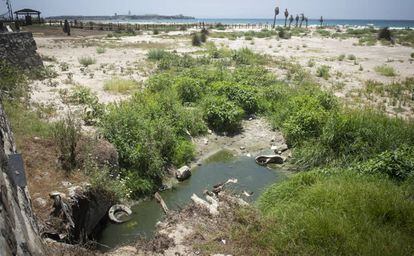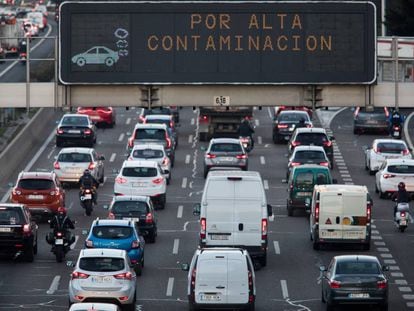Spain fined €12 million for failing to treat urban waste water
Nearly 18 years after deadline expired, nine municipalities still lack proper collection or treatment systems


The European Court of Justice on Wednesday ordered Spain to pay a €12 million fine for prolonged failure to comply with a European directive on urban waste water collection and treatment.
In an earlier judgment issued in 2011, this court had found that there were still 43 agglomerations with a population of 15,000 or more that failed to meet EU standards, even though member states were supposed to have adequate collection and treatment systems in place since 2001.
The particularly long duration of the infringement constitutes an aggravating circumstance
EU Court of Justice
Spain was given a 2013 deadline to comply, but the deadline expired and 17 localities were still discharging their waste water without proper treatment.
In 2017, the EU Commission brought new action, and the Court of Justice has now fined Spain a lump sum of €12 million, plus a penalty payment of €11 million for every six-month period of delay in getting the remaining municipalities up to speed on their water treatment standards.
As of today, there are nine Spanish municipalities that still fail to meet EU urban waste water regulations: seven in Andalusia (Matalascañas, Alhaurín el Grande, Isla Cristina, Tarifa, Coín, Nerja and Barbate), one in Asturias (Gijón Este) and one in the Canary Islands (Valle de Güímar).

The Ecological Transition Ministry said that current planning regarding water treatment plants makes it impossible for these agglomerations to meet the standards before 2022. The last one will be Barbate, in Cádiz province. But ministry sources added that they are working on a new action plan to shorten that period.
According to the ministry, it is local authorities who are in charge of this issue, “and collaterally, the regional governments, unless there is a formal ‘national interest’ designation,” in which case it is the state. In Andalusia, for instance, four cases fall to the regional government and three to the national government.
The EU will check back every six months, and the penalty will be reduced depending on the progress being made.
The court also found that “the particularly long duration of the infringement constitutes an aggravating circumstance,” and noted that there has been a delay of nearly 18 years since the directive set a deadline of December 31, 2000 for member states to have proper waste water collection and treatment systems in place.
English version by Susana Urra.












































